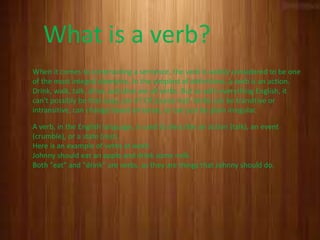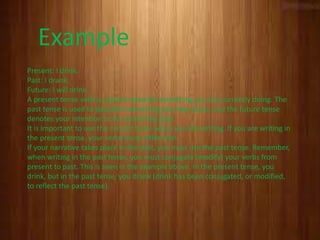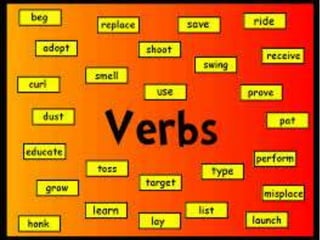Verbs are an integral part of constructing sentences in English. They are used to describe actions, events, or states. There are different types of verbs including transitive verbs, which require a direct object, and intransitive verbs, which do not. Verbs also change form depending on tense - present, past, or future. However, some verbs are irregular and do not follow the typical conjugation patterns when changing tense. For example, the past tense of "drink" is "drank" rather than "drinked." This causes difficulties, especially for English language learners.







